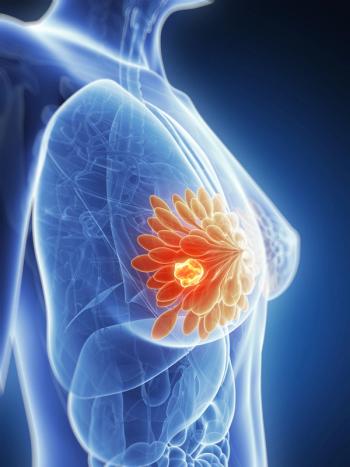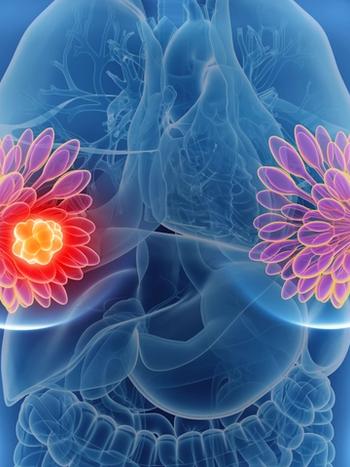
Oncology NEWS International
- Oncology NEWS International Vol 10 No 1
- Volume 10
- Issue 1
Cytokines Enhance Effects of Cord Blood Cells Against Breast Cancer
WASHINGTON-Umbilical cord blood cells alone have no cytotoxic properties, but studies show that when activated with interleukin-2 (IL-2), they may have some therapeutic effects against breast cancer, said Shantaram S. Joshi, PhD, associate professor of cell biology and anatomy, University of Nebraska Medical Center.
WASHINGTONUmbilical cord blood cells alone have no cytotoxic properties, but studies show that when activated with interleukin-2 (IL-2), they may have some therapeutic effects against breast cancer, said Shantaram S. Joshi, PhD, associate professor of cell biology and anatomy, University of Nebraska Medical Center.
Studies in Three Cell Lines
Dr. Joshi, who spoke at the Susan G. Komen Breast Cancer Foundation annual scientific conference, used three cell linesT47D, MCF-7, and MDA-231in his tests of cytokine-activated mononuclear cells from human umbilical cord blood.
Without activation, the cord blood mononuclear cells showed no antitumor activity. But following in vitro activation with IL-2, cord blood mononuclear cells demonstrated significantly increased cytotoxicity against human breast cancer in vitro as well as in vivo against MDA-231 human breast cancer cells grown in SCID mice.
Adding granulocyte macrophage-colony stimulating factor (GM-CSF) and macrophage-colony stimulating factor (M-CSF) to IL-2 increased activation of cytotoxic effector cells and cytotoxicity of cord blood cells against human breast cancer cells, Dr. Joshi said. GM-CSF or M-CSF combined with IL-2 significantly increased the natural-killer cell and dendritic cell population in mononuclear cells derived from cord blood.
"These studies suggest that combination of IL-2 with GM-CSF or M-CSF might be useful in inhibiting the growth of breast cancer in vivo," Dr. Joshi said, "and may lay the foundation for exploring the use of cord blood cells for therapy against breast cancer."
Articles in this issue
about 25 years ago
ODAC Recommends Campath for FDA Approval for Refractory CLLabout 25 years ago
‘IrinoGem’ Active and Well Tolerated in Pancreatic Cancerabout 25 years ago
STI571 Studies Help Validate Molecular Targeting in CMLabout 25 years ago
Outpatient Mylotarg Therapy Cuts Costs in Relapsed AMLabout 25 years ago
STI571 Proves Effective in Patients With Interferon-Failure CMLabout 25 years ago
Prostate Cancer Patients Tolerate Higher 3D Conformal RT Dosesabout 25 years ago
IP6 (Phytic Acid) Inhibits Breast Cancer in Animalsabout 25 years ago
Adjuvant Therapy Beneficial in Early, Node-Negative Breast Cancerabout 25 years ago
Medicare Increases Payment Rates for Most Physiciansabout 25 years ago
Update on High-Dose Consolidation Therapy in Breast CancerNewsletter
Stay up to date on recent advances in the multidisciplinary approach to cancer.



































